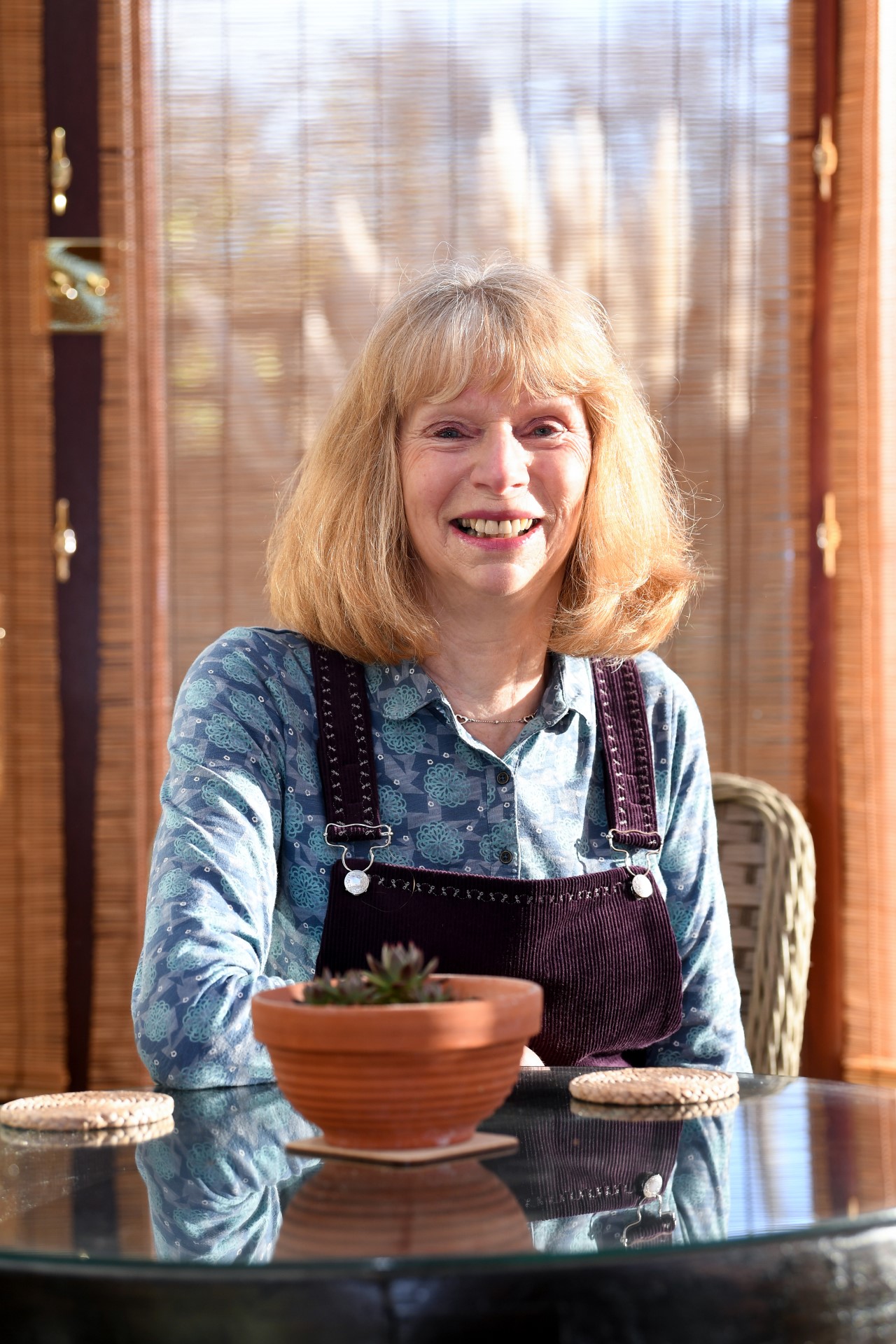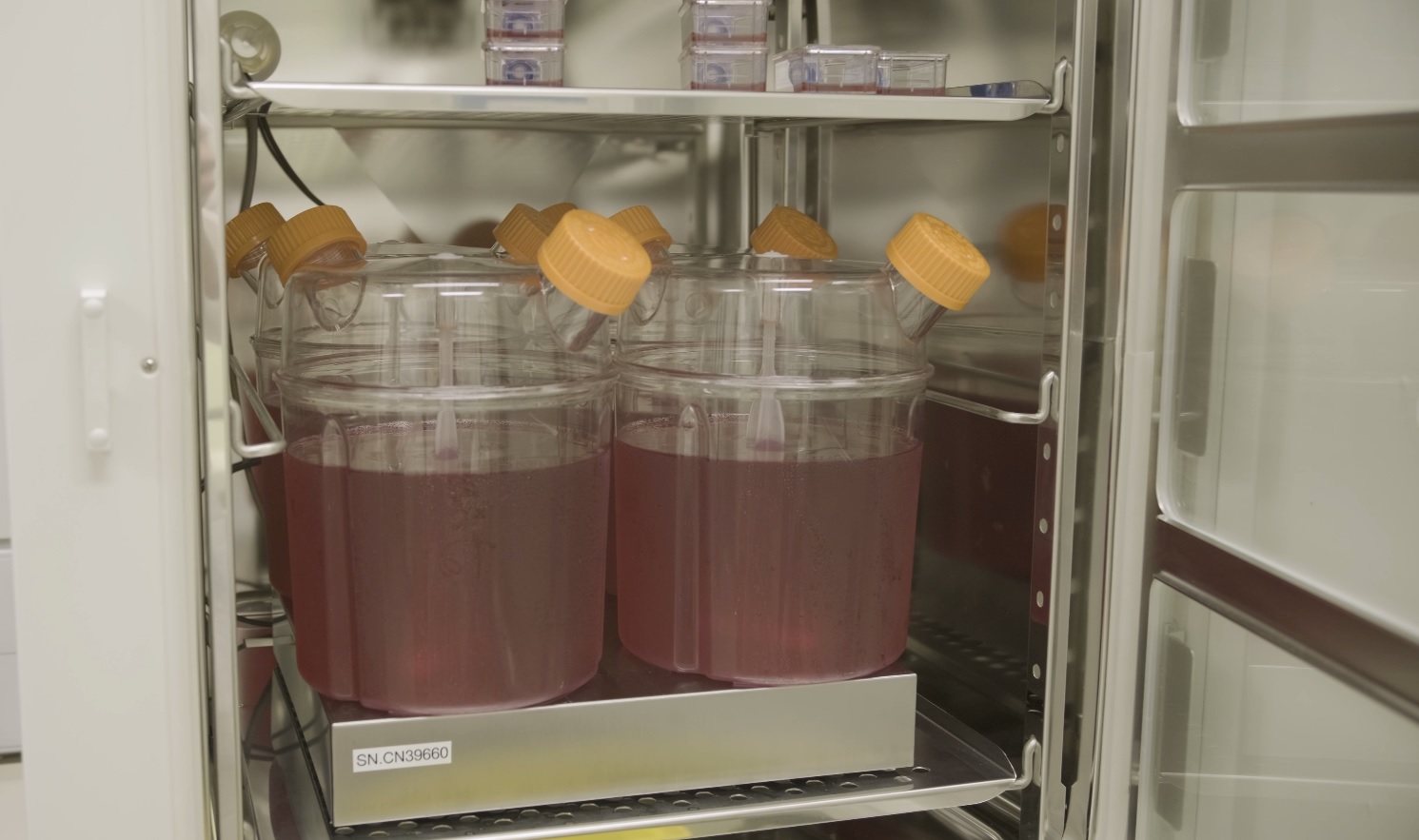One of the first people to have a transfusion of lab-grown red blood cells says: ‘why wouldn’t you do it?’
One of the first people to be transfused with red blood cells grown in a laboratory has spoken about her experiences.
Yvonne Smith, 69, from near Bury St Edmunds in Suffolk, became one of the first two people to receive red-blood cells in the world leading RESTORE trial. (1)
This is the first time in the world that red blood cells that have been grown in a laboratory have been given to another person in a blood transfusion. NHSBT announced the trial was underway in November. Yvonne is the first recipient to be named.
Yvonne received two injections of up to 10mls of red blood cells, both originating from the same donor. One injection contained red blood cells that grew naturally in the donor. The other injection contained red blood cells that had been grown in a lab from some of the same donor’s stem cells. Yvonne does not know which injection was which. She received regular follow ups to check the health of the transfused red blood cells and her own health. (2) (3)
She was recruited to take part in RESTORE through the NIHR BioResource, which is recruiting the volunteer recipients for the trial.
Yvonne was previously a blood donor herself, making about 60 donations, after being inspired to start by the famous ‘The Blood Donor’ episode of the TV show Hancock’s Half Hour.
However, Yvonne is no longer able to donate herself after a case of breast cancer in 2014.
Why wouldn't you do it?
She said: "I thought 'what else can I do?' I ticked a box and put my name forwards for research."
"I always wanted to be a nurse so it felt normal to help. Years later I was asked about taking part in the RESTORE trial."
"I wasn’t worried about getting the blood that was grown in the lab. They explained everything to me. They wouldn’t be doing it if there was a good chance something would go awry. It was straight forward."
"I am not squeamish. The injections were into my arm on the side of the elbow, where you donate blood. I couldn’t tell which one injection was the lab grown blood."
"I would encourage anybody to do it. There’s nothing to fear."
"You are just getting a little bit of blood and it’s going to help other people."
"I know the research could help people with sickle cell and other diseases where it’s difficult to find matching blood. Otherwise those people have a raw deal."
"So why wouldn’t you do it? I just hope some good comes from it."
Yvonne is a retired civil servant with two children and two stepchildren. She has volunteered for 20 years in a primary school and for 18 years with a National Trust sewing group making costumes.
How could manufactured blood cells help?
 If proved safe and effective, manufactured blood cells could in time revolutionise treatments for people with blood disorders such as sickle cell and rare blood types. It can be difficult to find enough well-matched donated blood for some people with these disorders.
If proved safe and effective, manufactured blood cells could in time revolutionise treatments for people with blood disorders such as sickle cell and rare blood types. It can be difficult to find enough well-matched donated blood for some people with these disorders.
The trial is studying the lifespan of the lab grown cells compared with infusions of standard red blood cells from the same donor. The lab-grown blood cells are all fresh, so the trial team expect them to perform better than a similar transfusion of standard donated red cells, which contains cells of varying ages.
The trial is the first step towards making lab grown red blood cells available as a future clinical product. For the foreseeable future, manufactured cells could only be used for a very small number of patients with very complex transfusions needs. NHSBT continues to rely on the generosity of donors.
Statements
Press release notes
- RESTORE is a clinical trial initiated by a joint research unit from NHS Blood and Transplant and the University of Bristol called the NIHR Blood and Transplant Research Unit in Red Blood Cell Products. The unit is working with the University of Cambridge, Guy’s and St Thomas’ NHS Foundation Trust, NIHR Cambridge Clinical Research Facility, and Cambridge University Hospitals NHS Foundation Trust. It is part-funded by a National Institute for Health and Care Research grant. The red blood cells are grown at NHSBT’s Advanced Therapies Unit in the Cellular and Molecular Therapies function in Filton from blood donors who have agreed to take part in the study. The cells are labelled with a tracer element by the Radiopharmacy Unit at Guy’s and St Thomas’ Hospital so they can be tracked through the recipient’s body when they are transfused. Recipient volunteers are recruited through the Recipient volunteers are recruited through the NIHR BioResource and study clinical team and receive their infusions in the NIHR Cambridge Clinical Research Facility. Cambridge University Hospitals NHS Foundation Trust provides pharmacy, laboratory, and research support.
- Donors were recruited from NHSBT’s blood donor base. They donated blood to the trial and stem cells were separated out from their blood. These stem cells were then grown to produce red blood cells in a laboratory at NHS Blood and Transplant’s Advanced Therapies Unit in Bristol. The recipients of the blood were recruited from healthy members of the National Institute for Health and Care Research (NIHR) BioResource.
- A minimum of 10 participants will receive two mini transfusions at least four months apart, one of standard donated red cells and one of lab grown red cells, to find out if the young red blood cells made in the laboratory last longer than cells made in the body.